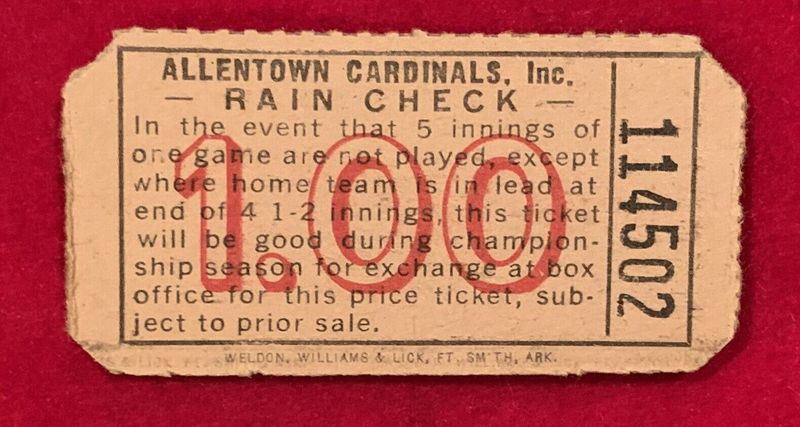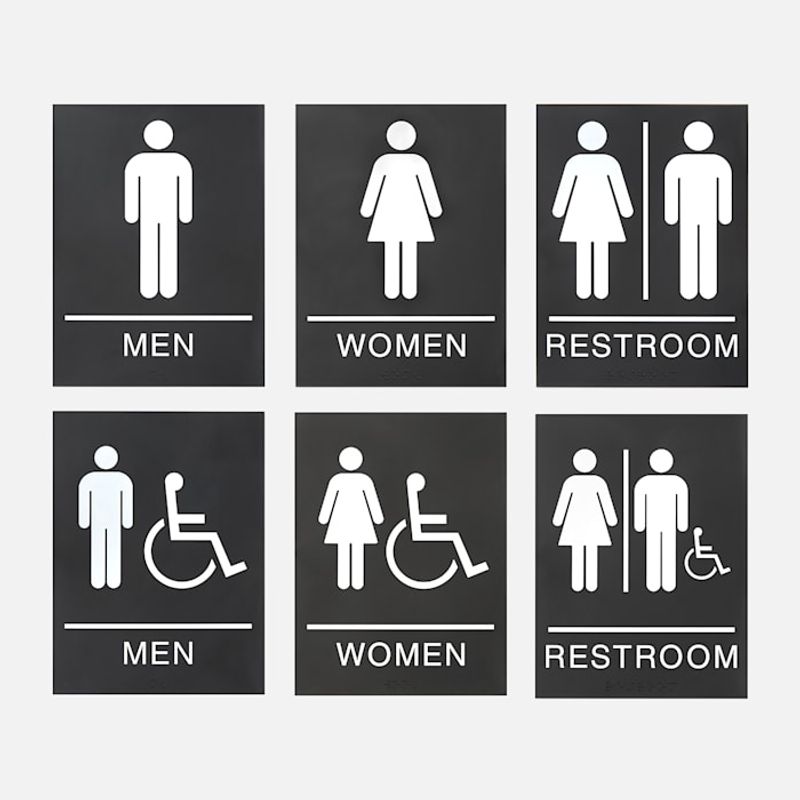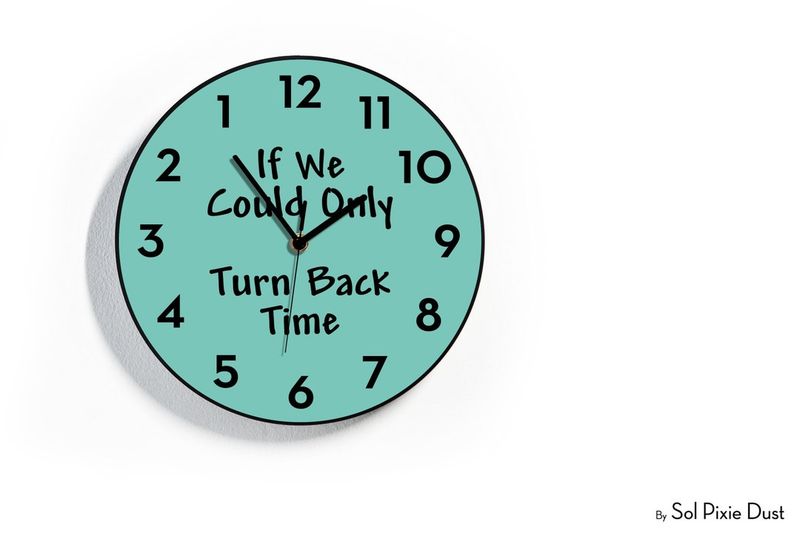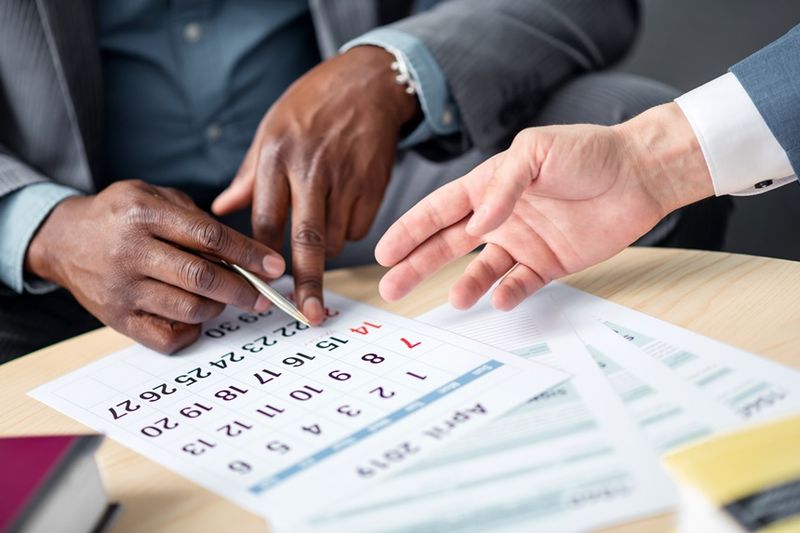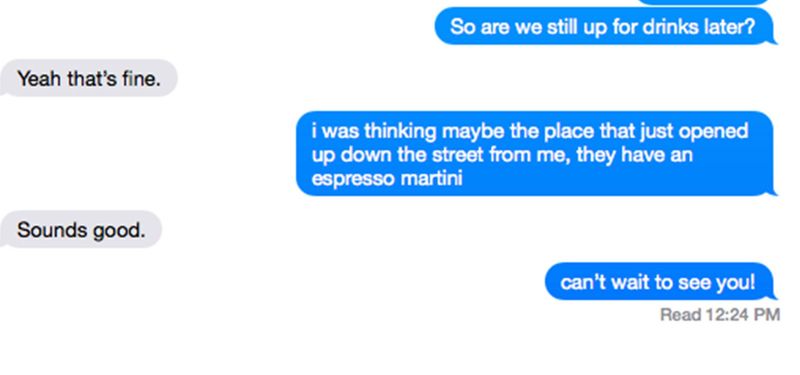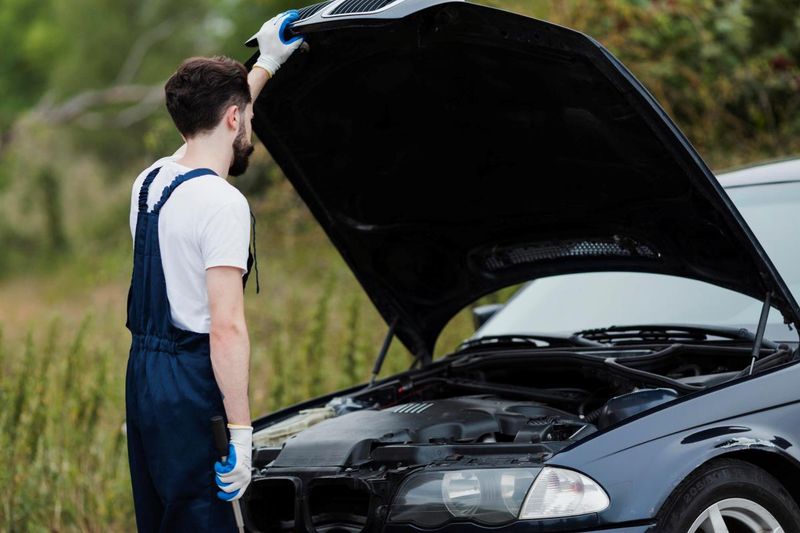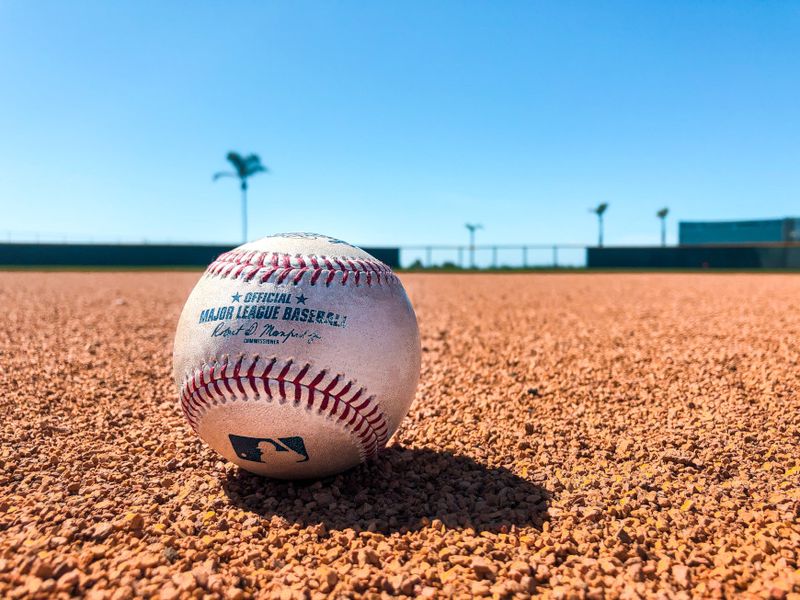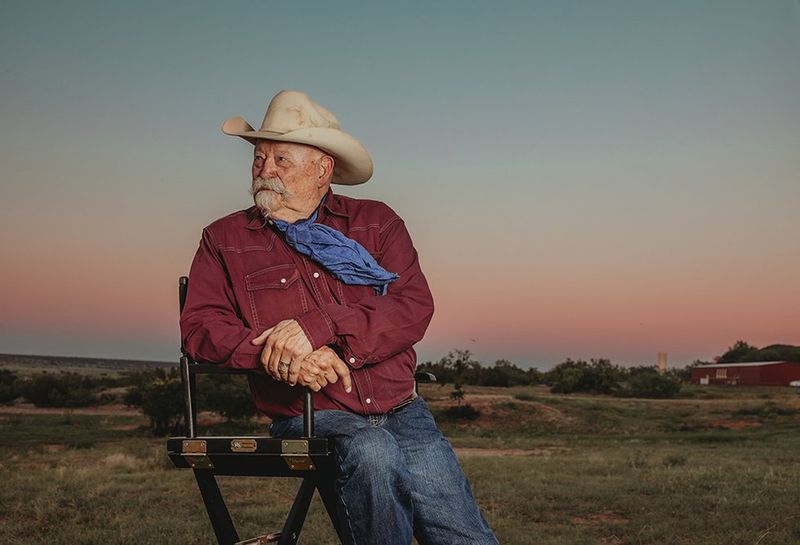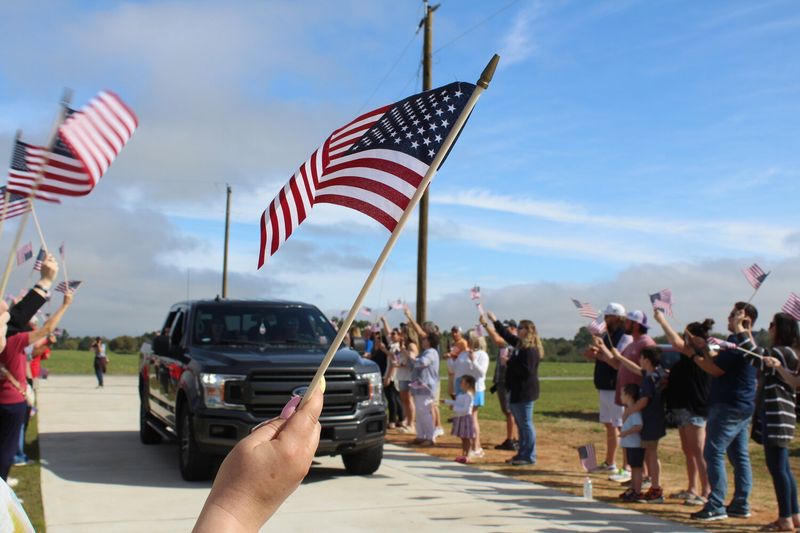Do you ever sit in a diner with a friend and hear something so bizarrely American fly out of someone’s mouth, you have to stop and check if you’re still in the same universe? That’s how it feels being around U.S. slang.
Most of us don’t even notice until someone from somewhere else gives us that blank, slightly horrified look—like, did you just ask me to do what with a duck? There’s a certain poetry in the nonsense, sure.
But let’s be honest: half the stuff we say as Americans makes zero sense if you didn’t grow up marinating in late-night sitcoms and fast food commercials. It’s not because we’re trying to be cryptic. It’s just that language is weird, and in the States, it can get real weird, real fast.
I’m pulling back the curtain. These are the nineteen phrases Americans say that, when spoken anywhere else, usually get you a smile, a head shake, or a totally blank stare. If you feel seen—or called out—reading this, you’re not alone. Welcome to the club.
1. Working the graveyard shift
Ever tried explaining your sleep schedule to your cousin in Italy and watched their face freeze? That’s what happens when you mention the graveyard shift. To Americans, it sounds normal: you work overnight, probably surrounded by silence and the hum of vending machines.
Everyone else just pictures you, alone, dodging ghosts in a cemetery. But in America, the phrase just means the hours when everyone else is dreaming. It’s lonely, can feel endless, and you learn all the best secrets of the night. There’s a weird badge of honor in surviving it, even if your body clock hates you for months.
Did you know? The phrase came from how quiet and deserted workplaces felt at 2 a.m.—like a graveyard. There’s nobody buried under your desk, just snacks you forgot about.
2. I could care less
You ever say, “I could care less,” and watch someone from abroad tilt their head like a dog hearing a whistle? That’s because it makes no sense. If you could care less, you actually care a little, right? But for Americans, it means you don’t care at all. Logic took a vacation on this one.
Most countries use, “I couldn’t care less.” We dropped the “n’t” somewhere in the ‘90s and never looked back. It’s become the ultimate brush-off, tossed out in arguments or sarcastic dinner table conversations. Don’t try rationalizing it—you’ll just end up tangled in syntax.
Quirky fact: Linguists still argue about when and why this phrase flipped. But hey, it’s ours now, and we’re sticking to it.
3. That’s sick
Imagine you just told your grandma from France that your friend’s new car is “sick.” She’s about to call a doctor. In America, though, “sick” means the exact opposite of what you think—it’s meant as high praise. That’s the magic (and frustration) of American slang.
This word can mean cool, wild, impressive. It’s all about tone and timing. Use it wrong, and you’ll just confuse everyone at the table. But use it right, and you’re suddenly fluent in teen excitement. There’s no logic. Just vibes.
This flip-flop of meaning is called “semantic inversion”—it’s how “bad” became “good” in the ‘80s, too. Our slang, our rules.
4. Take a rain check
If you ever asked a friend in Germany para “take a rain check,” you’d get a look that says, “Do you want me to bring an umbrella?” Americans say this when they need to cancel plans but want to reschedule. It’s our way of softening the blow, promising another shot.
This phrase came from baseball. When games got rained out, fans received a “rain check” ticket for the next game. Now, we use it for any letdown—birthdays, lunches, even awkward family reunions. It’s polite, but also a little wishful.
Honestly, most of the time, nobody cashes in that rain check. It just floats in the land of lost plans. Still, it sounds better than saying, “I can’t, and I don’t want to.”
5. Hit the gas
You’re on a road trip with someone from England, and you yell, “Hit the gas!” They freeze, looking for something to punch. In America, this just means step on the accelerator. No actual hitting—and definitely no violence toward your car.
It’s one of those expressions that sounds way more dramatic than it is. Americans love urgency—so even simple things get action movie phrasing. It’s less about the literal act, more about the feeling: hurry up, let’s move!
Fun fact: The phrase is so common, we use it for life stuff, too. “Hit the gas” on your career, your workout, even your texts. We’re always in a rush, even when we’re not moving.
6. Going to the restroom
Ever ask for the restroom in Paris? You’ll get shown to an actual lounge, not a bathroom. In America, the word “restroom” is just a polite way to say you need a toilet. No one expects you to nap or meditate in there.
Other places say bathroom, loo, WC, or toilet. Americans went for something that sounds gentler—like you’re going for peace, not plumbing. But honestly, most restrooms are anything but restful, especially at the airport.
The term caught on in fancy department stores in the early 1900s. It stuck. Now, we’re all just pretending to “rest” when nature calls.
7. Table it
Picture this: you’re in a meeting with your British coworker, and someone says, “Let’s table it.” In the U.K., that means start talking about it. In America, it means stop, put it away, deal with it later. Pure confusion follows.
This phrase is a classic example of how everyday words go rogue across the ocean. Here, “tabling” something is dodging it, not diving in. It’s the go-to move in long meetings or when things get too heated.
Little secret? Sometimes, “table it” is how we say, “I can’t handle this right now.” It’s the grown-up version of hitting pause on life.
8. I can’t put my finger on it
You know that feeling when something’s off, but you just can’t say what? That’s what Americans mean by, “I can’t put my finger on it.” We reach for this phrase when we’re stumped and need a little space to figure things out.
Other cultures might just say, “I don’t know.” Americans? We go metaphorical. It sounds more mysterious, like you’re Sherlock Holmes with a puzzle to solve.
Interesting origin: The phrase dates back to the 1800s, when “put your finger on” meant to identify a problem physically. Now, it’s about those gut feelings you can’t shake—but can’t explain, either.
9. Counterclockwise
Have you ever tried setting a timer in Australia and said, “Turn it counterclockwise?” You’ll get a blank stare. They say “anticlockwise.” In America, we went with the wordier, slightly clunkier version.
It’s not just clocks. American English loves to reinvent the wheel—sometimes literally. “Counterclockwise” appears on appliances, instructions, even playground games. It’s our way of doing things… against the flow, but with lots of syllables.
Quirky detail: The phrase first popped up in the late 1800s, and Americans just stuck with it. It might sound odd, but it’s as standard here as apple pie.
10. Piece of cake
Your friend in Spain struggles with her taxes. You say, “It’s a piece of cake!” She wonders why dessert is involved. In America, this means something is easy—effortless, even.
The phrase comes from old cakewalk competitions, where walking in time to music could win you a cake. Now, Americans use it for everything: passing a test, finishing chores, even getting out of bed (sometimes wishful thinking).
Sometimes, we say “easy as pie,” just to confuse people further. Either way, dessert and simplicity are forever linked in our language.
11. Bi-weekly
You hear “bi-weekly” at work and immediately panic—do they mean twice a week, or every two weeks? Americans aren’t sure either. This word is a linguistic minefield, and nobody’s cleared it yet.
The confusion comes from Latin roots, but modern usage muddied the waters. HR departments, magazine subscriptions, even therapists use it—and everyone just nods, hoping for context to save them.
Real talk: If you ever need clarity, ask. Americans won’t judge. We’re all guessing too.
12. Write me/write you
You text a British friend, “Write me!” and they wonder if you want them to author your biography. In American English, this simply means send me a message or letter. We drop the “to”—it’s faster, easier, maybe a little lazy.
This shortcut baffles a lot of people. In other English-speaking countries, “write to me” is the norm. Americans just like their sentences lean and speedy.
Did you know? This kind of phrase-trimming is everywhere in U.S. lingo. If there’s a way to cut corners and still be understood, we’ll find it.
13. The hood of the car
Road trip tip: If you ask someone in England to check the “hood” of the car, they’ll think you mean a jacket. In America, this means the big metal cover over the engine. It’s everyday language here, not a fashion statement.
Other countries call it the “bonnet,” which sounds fancier, honestly. But American English went for practical over posh. Car culture runs deep here, so everyone grows up knowing the difference.
“Trunk” em vez de “boot” is another one. Americans don’t dress up their cars—they just get them moving.
14. Ballpark figure
You ask for an estimate, and someone says, “Just give me a ballpark figure.” If you’re not from America, you picture baseball, not budgets. But this phrase means a rough guess—a number that’s close enough for now.
The origin is straight from America’s favorite pastime. The “ballpark” is the stadium, the general area. A “figure” in the ballpark? It’s close, but maybe not exact.
It’s one of those business buzzwords that slipped into everyday talk. If you hear it, no need to get out your calculator. Just take a swing and hope you hit close.
15. Shoot the breeze
Do you ever sit with someone and talk about nothing at all? That’s “shooting the breeze.” In America, it means chatting aimlessly, letting conversation drift wherever it wants. There’s comfort in it, a kind of lazy magic.
British friends might say “having a natter” ou “chewing the fat.” Here, though, we’re breezy. The phrase paints a picture: words floating away, light as air, no pressure.
Nobody’s sure where this one came from. But it stuck, probably because everyone needs a break from seriousness sometimes.
16. The American Dream
You mention “the American Dream” in a café in Tokyo, and you’ll get questions. In the U.S., it’s the deep belief that anyone can succeed with grit and hustle. It’s tied to hope, but also to struggle and moving up—sometimes at a cost.
This phrase is loaded. For some, it’s a promise; for others, a myth that doesn’t match reality. But it’s everywhere—in movies, speeches, even family dinners. Ask three Americans what it means, and you’ll get three stories.
Origin: The term dates back to the 1930s, tied to the idea that America’s streets were “paved with gold.” Turns out, it’s more about pavement than gold.
17. Water under the bridge
Do you try explaining forgiveness to a friend and say, “It’s water under the bridge?” Blank faces everywhere. In America, it means what happened is over and done with—let’s move on. The past flows away, just like water.
It’s poetic, sure, but also practical. Americans use it to end arguments, heal relationships, or just shrug off a bad day at work. There’s comfort in the idea that time erases some wounds.
History note: This saying first appeared in American newspapers in the 1800s. It stuck around, probably because everyone needs to let things go sometimes.
18. Put up your dukes
This means raise your fists, get ready to fight. There’s no royalty—just old-timey slang that stuck around.
“Dukes” means hands, thanks to rhyming slang from British immigrants. Americans turned it into a challenge—part joke, part threat. It shows up in movies, cartoons, and, occasionally, family play-fights.
Most of the time, it’s said with a wink. It’s more about teasing than actual boxing.
19. Each dog has his day
You tell a friend, “Each dog has his day,” and they wonder if you’re talking about a literal pet calendar. It means everyone gets a chance at success—hope for the underdog, so to speak.
The phrase goes back to Shakespeare. Americans turned it into a pep talk for tough times, a reminder that luck comes around. You’ll hear it after losses, job rejections, or any rough patch that needs a little hope.
It’s also why we have “dog days of summer.” If you’re feeling down, just wait—your day is coming, too.





